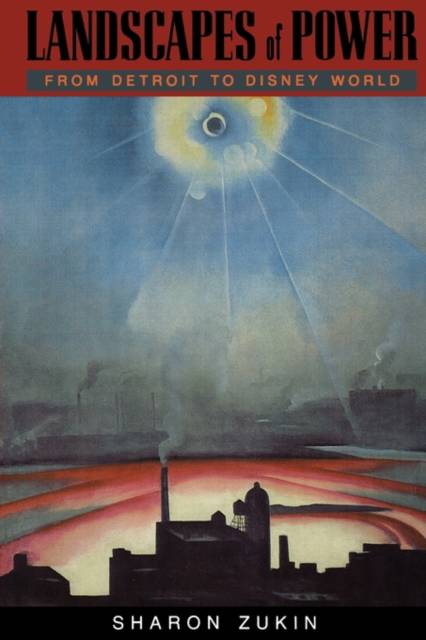
- Afhalen na 1 uur in een winkel met voorraad
- Gratis thuislevering in België vanaf € 30
- Ruim aanbod met 7 miljoen producten
- Afhalen na 1 uur in een winkel met voorraad
- Gratis thuislevering in België vanaf € 30
- Ruim aanbod met 7 miljoen producten
Zoeken
€ 41,95
+ 83 punten
Omschrijving
The momentous changes which are transforming American life call for a new exploration of the economic and cultural landscape. In this book Sharon Zukin links our ever-expanding need to consume with two fundamental shifts: places of production have given way to spaces for services and paperwork, and the competitive edge has moved from industrial to cultural capital. From the steel mills of the Rust Belt, to the sterile malls of suburbia, to the gentrified urban centers of our largest cities, the "creative destruction" of our economy--a process by which a way of life is both lost and gained--results in a dramatically different landscape of economic power. Sharon Zukin probes the depth and diversity of this restructuring in a series of portraits of changed or changing American places. Beginning at River Rouge, Henry Ford's industrial complex in Dearborn, Michigan, and ending at Disney World, Zukin demonstrates how powerful interests shape the spaces we inhabit. Among the landscapes she examines are steeltowns in West Virginia and Michigan, affluent corporate suburbs in Westchester County, gentrified areas of lower Manhattan, and theme parks in Florida and California. In each of these case studies, new strategies of investment and employment are filtered through existing institutions, experience in both production and consumption, and represented in material products, aesthetic forms, and new perceptions of space and time. The current transformation differs from those of the past in that individuals and institutions now have far greater power to alter the course of change, making the creative destruction of landscape the most important cultural product of our time. Zukin's eclectic inquiry into the parameters of social action and the emergence of new cultural forms defines the interdisciplinary frontier where sociology, geography, economics, and urban and cultural studies meet.
Specificaties
Betrokkenen
- Auteur(s):
- Uitgeverij:
Inhoud
- Aantal bladzijden:
- 338
- Taal:
- Engels
Eigenschappen
- Productcode (EAN):
- 9780520082885
- Verschijningsdatum:
- 12/03/1993
- Uitvoering:
- Paperback
- Formaat:
- Trade paperback (VS)
- Afmetingen:
- 152 mm x 227 mm
- Gewicht:
- 467 g

Alleen bij Standaard Boekhandel
+ 83 punten op je klantenkaart van Standaard Boekhandel
Beoordelingen
We publiceren alleen reviews die voldoen aan de voorwaarden voor reviews. Bekijk onze voorwaarden voor reviews.











